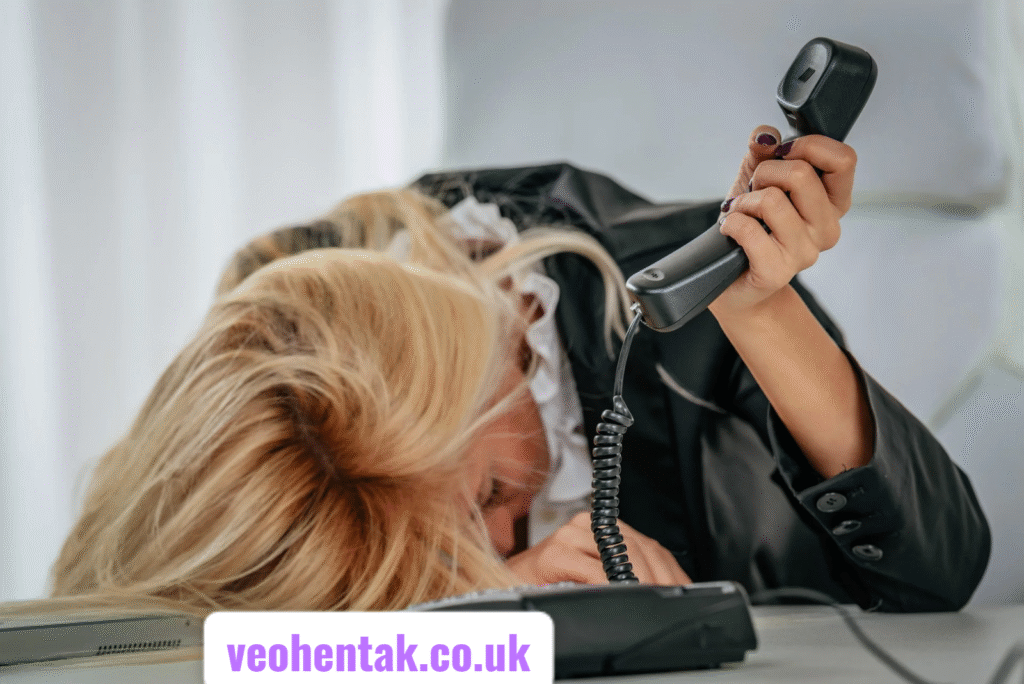The phone number 02045865970 is often searched because many people receive unexpected calls from it and want to understand who is behind them. In most cases, it is linked to marketing, verification, or outreach services used by various companies. If you missed the call or feel unsure, avoid sharing personal information and verify the caller through official channels to stay safe.
This article explains everything you need to know about the number 02045865970, a contact many people report receiving calls from. You’ll learn why such numbers appear, how companies use outbound calling systems, and what steps help you confirm whether the call is genuine or suspicious. The guide also covers telecom practices, data protection rules, user experiences, and essential safety measures. To keep the article practical and human-friendly, each section explores real scenarios, calling patterns, and verification techniques. By the end, you’ll understand how to handle unknown callers confidently, protect your information, and respond correctly if this number—or any similar one—tries reaching you again.
Understanding Why Numbers Like 02045865970 Call Unexpectedly
Many people wonder why a number such as 02045865970 might call without warning. Unknown numbers are usually linked to automated outbound systems used by banks, delivery companies, or marketing teams. These systems dial thousands of users daily, and not all calls are malicious. Some are simple reminders, follow-ups, or verification checks. However, because the caller identity is not always displayed clearly, the experience can feel suspicious. Understanding how modern call-routing works helps you stay calm while evaluating whether the call needs your attention.
How Outbound Call Centres Operate Behind the Scenes
Modern call centres rely on predictive dialers and cloud-based phone systems that generate large volumes of calls. When you receive a ring from an unfamiliar number, the system may be confirming activity, requesting feedback, or verifying account details. Many businesses outsource these operations to third-party agencies operating in different regions. These agencies often use London-based or UK-based virtual numbers to appear more credible. Knowing that such calls could be routine helps you respond sensibly instead of ignoring potentially relevant updates or reminders.
Reasons a Legitimate Company Might Contact You
A call from an unknown number might simply be routine. Businesses rely on automated outreach to communicate efficiently with customers. These calls may concern delivery confirmations, payment reminders, survey requests, or updates linked to an ongoing service. Sometimes companies attempt multiple times when a user does not answer, which makes the caller appear persistent. While this can be irritating, it does not necessarily mean the call is harmful. Evaluating context—recent purchases, account activities, service sign-ups—often helps you understand the purpose behind the call.
Common Situations Where You May Receive Calls Unexpectedly
People often forget how frequently they engage with online forms, apps, and sign-up processes. Providing your number during these steps allows businesses to reach out later. This can generate calls linked to verification, appointment reminders, or promotional offers. Several individuals receive calls after browsing finance sites or requesting quotes online. Data-sharing agreements between companies also contribute to unsolicited contact. Being aware of your digital behaviour helps you trace the origin of such calls more accurately and prevents unnecessary worry.
When a Call Might Be Part of Verification or Security Checks
Many companies use phone verification to confirm identity or authenticate activities. If you recently logged into an account from a new device, updated banking information, or reset a password, an automated system may call you. These verification services use external telecom providers, which is why numbers sometimes differ from official ones. Although this might seem odd, the intention is often security-oriented. Still, you should never share sensitive information unless you initiated the request and are confident the call is legitimate.
Also read this: Who Is Calling from 01174637618? Full Guide Explained
Warning Signs the Call Could Be Suspicious (Bullet Section #1)
Sometimes unknown callers raise red flags that you shouldn’t ignore. Watch out for patterns that indicate risk:
- Requests for personal details, passwords, or bank information.
- Urgency-driven threats, pressure, or claims your account will be blocked.
- Background noise, scripted messages, or inconsistent explanations.
- Calls arriving repeatedly within short intervals without voicemails.
If you notice more than one of these, treat the call as suspicious and avoid further conversation.
Understanding Telecom Spoofing and Number Masking
Spoofing technology allows scammers to display a number that appears legitimate, even though they are calling from somewhere else entirely. This is a common tactic used by fraudsters who aim to trick users into thinking the call is coming from a trusted local source. While telecom authorities actively monitor such activities, spoofed calls still circulate widely. Recognizing that a displayed number may not represent the caller’s true identity helps you approach every unknown call with healthy caution rather than fear.
How to Verify If the Caller Is Genuine
Before you trust any unknown number, verification is essential. Start by checking whether you expect a call from any service recently contacted. Look up the number on reputable platforms to see other user reports. You can also call the official customer support line of the company the caller claims to represent. Avoid returning calls directly to unfamiliar numbers if you feel unsure. Reliable organisations always provide clear contact details, and you should rely on those instead of unverified sources.
Evidence That Calls Can Be Harmless and Routine
Across the UK, millions of automated calls are placed daily for legitimate purposes. Healthcare providers confirm appointments, financial institutions schedule callbacks, and delivery companies verify locations. Many users report receiving such calls, only to realise later that the number was linked to a genuine service request. This demonstrates that not all unexpected calls indicate risk. The key is cautious evaluation rather than automatic fear, allowing you to identify harmless communication without exposing yourself to potential scams.
How Businesses Use UK Virtual Numbers for Customer Outreach
A large number of companies use virtual UK landline numbers to create trust and improve response rates. These numbers allow businesses to appear local even if their staff operate from different regions. Virtual calling systems also handle large volumes efficiently, which is why users might receive multiple attempts if one call goes unanswered. Although this system improves communication for businesses, it often leaves customers uncertain. Recognising this practice helps you interpret unknown numbers more realistically.
Steps to Protect Yourself From Unwanted or Unsafe Calls (Bullet Section #2)
Following a structured safety approach helps you remain secure:
- Enable spam protection features on your smartphone or network provider.
- Register your number with the Telephone Preference Service (TPS).
- Never share personal details unless you initiated the contact.
- Report suspicious numbers to relevant consumer protection agencies.
These practices increase your safety and reduce unnecessary interactions with unknown callers.
How People Usually React to Calls From Unknown Numbers
Most individuals feel uneasy when they receive a call from an unfamiliar number. This reaction is natural, especially because fraud cases have increased in recent years. However, people often assume the worst without considering potential harmless explanations. Understanding common calling patterns allows you to approach unknown numbers with a balanced mindset. Instead of panicking, you can take a moment to analyse the situation, review recent interactions, or look up relevant information to determine the context of the call.
What to Do If the Caller Behaves Suspiciously
If the person on the other end presses you for information or becomes aggressive, hang up immediately. Fraudsters often rely on emotional pressure to trick victims. You should avoid responding with anger or fear; simply ending the call is the safest approach. Document the number, report it if necessary, and block it to prevent repeated attempts. Practising these steps protects you from potential exploitation and ensures that you remain in control of the situation at all times.
The Importance of Reviewing Your Recent Online Activity
Before assuming that the call is fraudulent, review any forms you recently filled out, websites you visited, or services you interacted with online. Many platforms request your phone number for verification or follow-up communication. These interactions can generate legitimate calls that might appear unexpected. Connecting the dots between your digital activity and phone interactions helps you determine whether a call could be part of a service you actively engaged with.
Why Transparency Matters in Caller Communication
Many issues arise because callers do not clearly identify themselves during the first few seconds of the conversation. When organisations fail to provide clear introductions, people naturally become cautious. Businesses that prioritise transparency build better trust and reduce user anxiety. Understanding how proper introduction protocols work helps you assess whether a call seems legitimate. When a caller clearly states their identity, reason for calling, and verification methods, it often indicates a professional and authentic communication process.
Final Thoughts on Handling Calls From Unknown Numbers Like 02045865970
Although receiving a call from 02045865970 or any similar number can feel unsettling, careful evaluation usually reveals ordinary explanations. Understanding how outbound systems work, recognising verification patterns, and applying basic safety techniques allow you to navigate such calls confidently. The goal is not to fear unknown numbers but to handle them wisely. Awareness, verification, and caution provide the best defence while still allowing you to stay connected to legitimate services when needed.
Conclusion
Unknown numbers are a normal part of modern communication systems, even though they may cause concern at first glance. By learning how companies use automated calls, recognising signs of suspicious behaviour, and verifying every interaction, you protect yourself effectively. Not all calls are harmful, but staying alert ensures your safety. Remaining informed, calm, and aware allows you to manage unknown callers with confidence, reducing anxiety and improving your overall digital security experience.
FAQs
1. Is 02045865970 a scam number?
Not always. Some calls are routine, but verify before trusting.
2. Why did this number try calling me multiple times?
Automated systems retry when calls go unanswered.
3. Should I call the number back?
Only if you verified it through an official company website.
4. Can legitimate companies use unfamiliar phone numbers?
Yes, many use virtual UK numbers for customer outreach.
5. How do I block unwanted calls easily?
Use your phone’s spam filter or your network provider’s blocking service.
6. Is it safe to answer unknown UK landline numbers?
Yes, but avoid sharing personal details until you’re sure of the caller.
7. What should I do if the caller asks for sensitive information?
End the call immediately and report the number.
Fore more info: veohentak.co.uk


